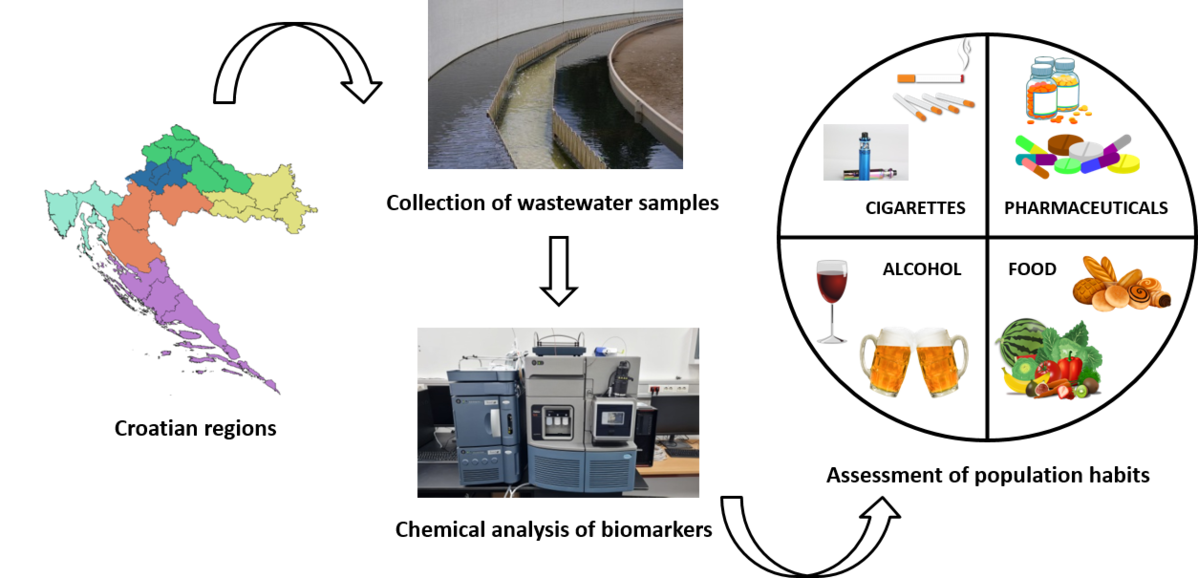Lifestyle and dietary habits are currently mainly assessed using traditional epidemiological methods, such as surveys and sales statistics. While these methods are useful, they have many limitations due to their subjective nature and/or incomplete data. Wastewater-based epidemiology (WBE), sometimes referred to as sewage chemical information mining, is a relatively new, objective, cost-effective and timely approach to obtaining some relevant epidemiologic information at the population level. It is based on the chemical analysis of specific human urinary biomarkers in wastewater. WBE has been successfully applied as a complementary method to assess collective illicit drug use, but municipal wastewater is a potential repository of numerous other chemicals that may reflect population lifestyle, exposure to contaminants, and health status. However, the potential of WBE to assess dietary habits has hardly been investigated and only a few studies can be found in the literature. The aim of this project is to investigate lifestyle and dietary habits in Croatian regions using an innovative WBE approach. The study will include biomarkers of the consumption of alcoholic beverages, tobacco/nicotine, several classes of commonly abused pharmaceuticals, and various biomarkers related to dietary habits. Selected compounds will be analyzed by liquid chromatography ‒ tandem mass spectrometry (LC-MS/MS). Due to the relatively large number of biomarkers with very different physico-chemical properties and concentrations in wastewater, several highly specific analytical methods will be developed and validated. In addition, the stability of the target substances will be evaluated both in the sample and in the sewer system. The applicability of the concept will be tested by analyzing raw municipal wastewater from at least six Croatian cities during different seasons to investigate spatial and temporal differences in lifestyle and diet. The results of the wastewater analysis will be compared with data obtained using conventional epidemiological methods.
RESEARCH OBJECTIVES
1) Inventory of potential biomarkers suitable for assessing lifestyle and dietary habits
2) Development and validation of analytical methods for the determination of target biomarkers in wastewater
3) Investigation of the stability of selected biomarkers in raw wastewater and model sewer system
4) Analysis of target biomarkers in municipal wastewater of Croatian cities
5) Assessment of lifestyle and dietary habits in Croatian regions
ASSOCIATES:
Dr. sc. Senka Terzić
Dr. sc. Marijan Ahel
Dr. sc. Ivona Krizman Matasić
Karlo Jambrošić, mag. ing. oecoing.
Tin Županović, univ. mag. chem.
Dr. sc. Iva Mikac
Petar Ujčić, mag. geol.
Nenad Muhin
Dr. sc. Marin Matošić, Faculty of Food Technology and Biotechnology
Dr. sc. Josip Ćurko, Faculty of Food Technology and Biotechnology
Dr. sc. Ivana Rumbak, Faculty of Food Technology and Biotechnology
Dr. sc. Mira Petrović, Catalan Institute for Water Research (Spain)


